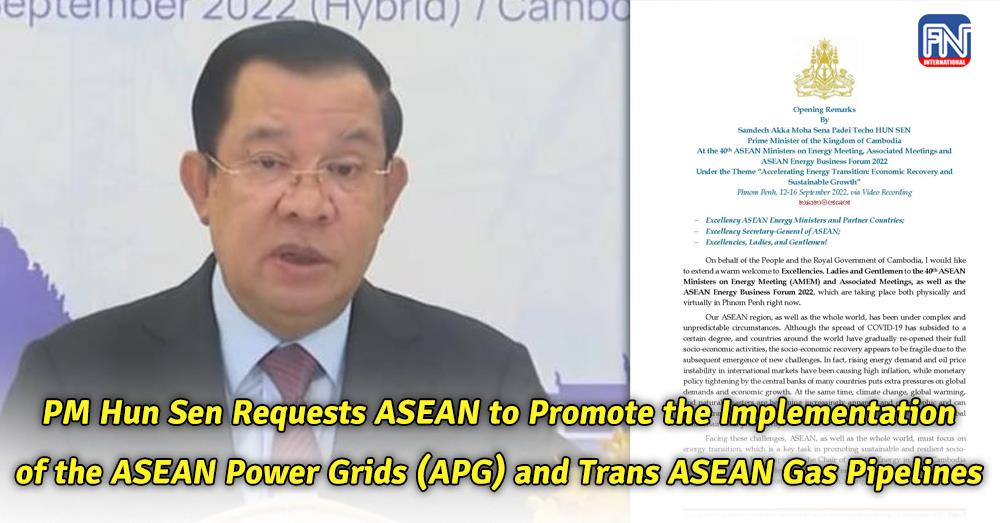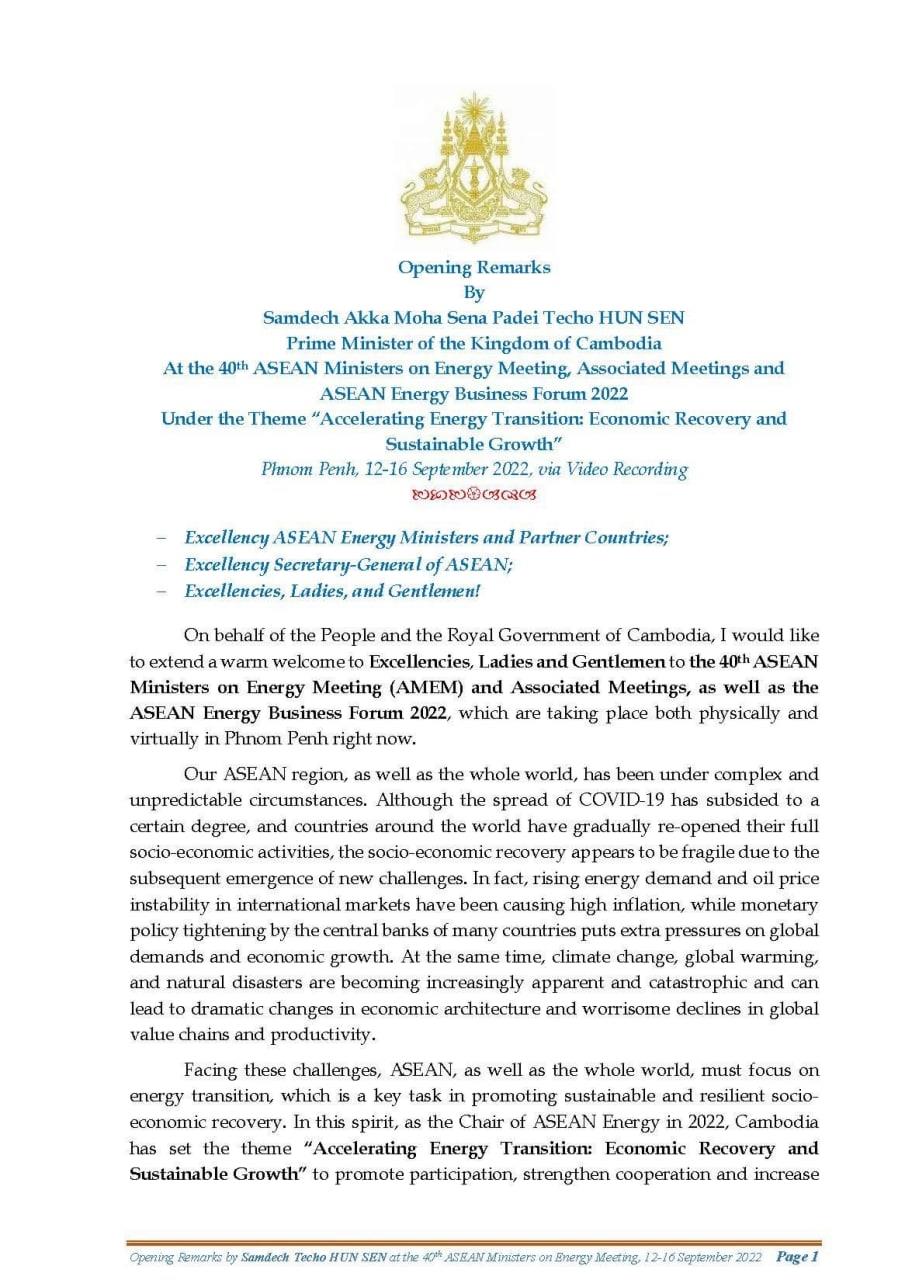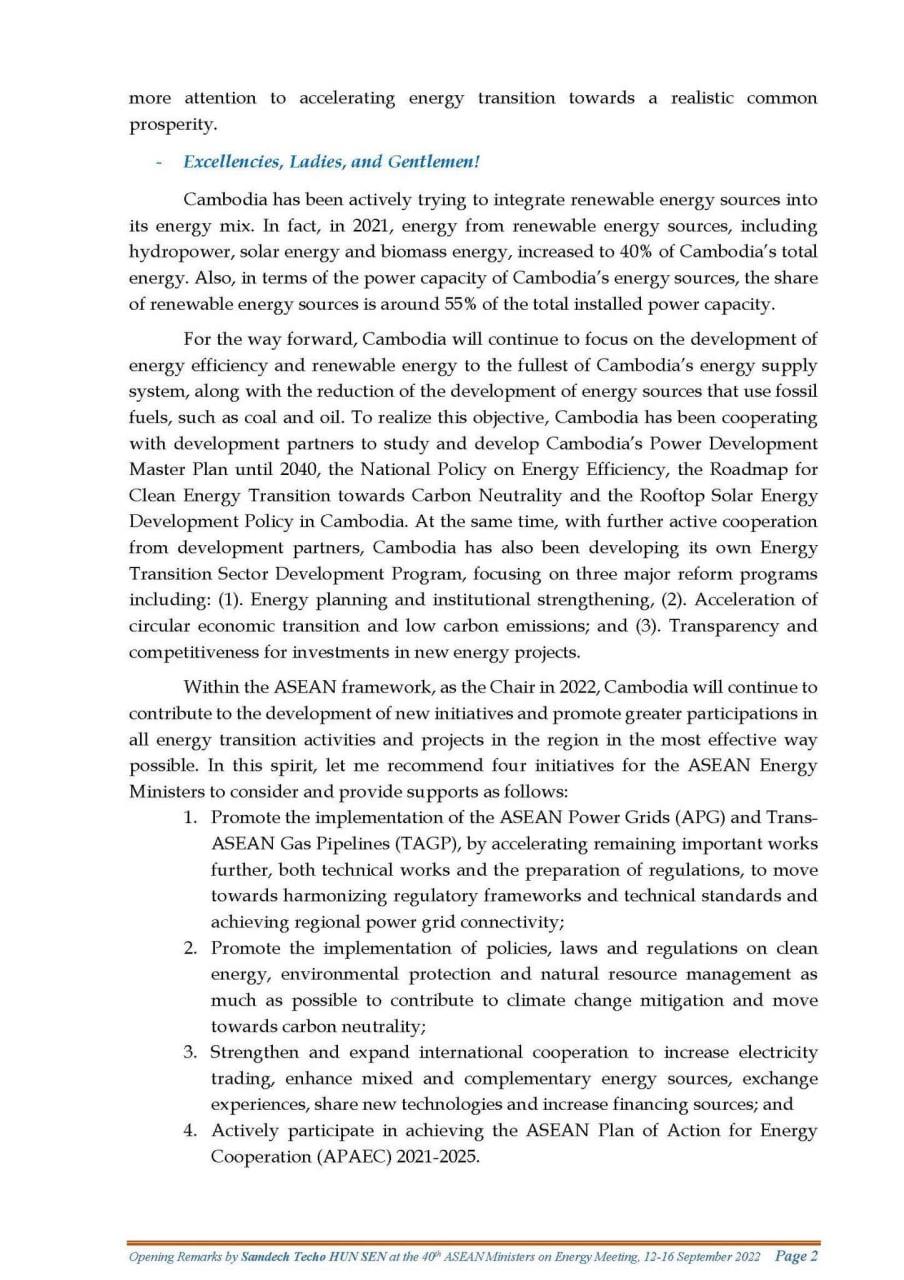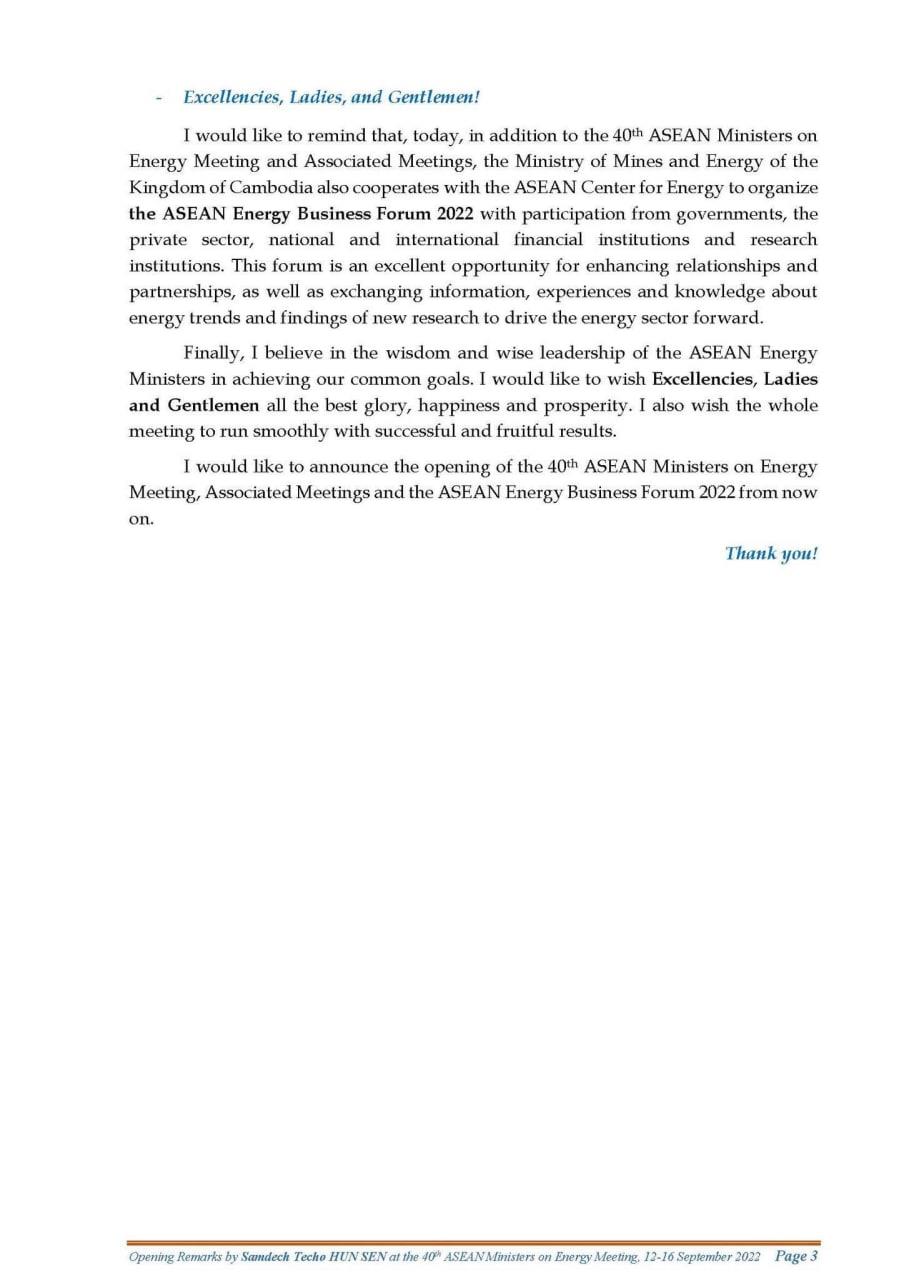Phnom Penh (FN), Sep. 15 – Cambodian prime minister Hun Sen and also the rotating chair of ASEAN in 2022, request ASEAN to promote the implementation of the ASEAN Power Grids (APG) and Trans ASEAN Gas Pipelines.
The premier spoke in the 40th ASEAN Ministers on Energy Meeting, Associated Meeting and ASEAN Energy Business Forum 2022, held on Thursday morning (Sep 15) via video recording.
“Our ASEAN region, as well as the whole world, has been under complex and unpredictable circumstances. Although the spread of COVID19 has subsided to a certain degree, and countries around the world have gradually re-opened their full socio-economic activities, the socio-economic recovery appears to be fragile due to the subsequent emergence of new challenges,” the premier underlined.
“In fact, rising energy demand and oil price instability in international markets have been causing high inflation, while monetary policy tightening by the central banks of many countries puts extra pressures on global demands and economic growth. At the same time, climate change, global warming, and natural disasters are becoming increasingly apparent and catastrophic and can lead to dramatic changes in economic architecture and worrisome declines in global value chains and productivity,” the premier continued.
Facing these challenges, ASEAN, as well as the whole world, must focus on energy transition, which is a key task in promoting sustainable and resilient socio economic recovery.
Samdech also recommend four initiatives for the ASEAN Energy Ministers to consider and provide supports as follows:
“1. Promote the implementation of the ASEAN Power Grids (APG) and Trans ASEAN Gas Pipelines (TAGP), by accelerating remaining important works further, both technical works and the preparation of regulations, to move towards harmonizing regulatory frameworks and technical standards and achieving regional power grid connectivity;
2. Promote the implementation of policies, laws and regulations on clean energy, environmental protection and natural resource management as much as possible to contribute to climate change mitigation and move towards carbon neutrality;
3. Strengthen and expand international cooperation to increase electricity trading, enhance mixed and complementary energy sources, exchange experiences, share new technologies and increase financing sources; and
4. Actively participate in achieving the ASEAN Plan of Action for Energy Cooperation (APAEC) 2021-2025.”
Cambodia has been actively trying to integrate renewable energy sources into its energy mix. In fact, in 2021, energy from renewable energy sources, including hydropower, solar energy and biomass energy, increased to 40% of Cambodia's total energy. Also, in terms of the power capacity of Cambodia's energy sources, the share of renewable energy sources is around 55% of the total installed power capacity.
For the way forward, Cambodia will continue to focus on the development of energy efficiency and renewable energy to the fullest of Cambodia's energy supply system, along with the reduction of the development of energy sources that use fossil fuels, such as coal and oil. To realize this objective, Cambodia has been cooperating with development partners to study and develop Cambodia's Power Development Master Plan until 2040, the National Policy on Energy Efficiency, the Roadmap for Clean Energy Transition towards Carbon Neutrality and the Rooftop Solar Energy Development Policy in Cambodia.
Samdech added, “With further active cooperation from development partners, Cambodia has also been developing its own Energy Transition Sector Development Program, focusing on three major reform programs including: (1). Energy planning and institutional strengthening, (2). Acceleration of circular economic transition and low carbon emissions; and (3). Transparency and competitiveness for investments in new energy projects”.
=FRESH NEWS



